As part of its research tour in the French capital Paris and its second consecutive participation in the Paris International Book Fair, TRENDS Research & Advisory discussed with the Chairman of the Foreign Affairs Committee in the French National Assembly and President of the Representative Council of Jewish Institutions in France (CRIF) avenues of cooperation in fighting extremist and terrorist organizations – most notably the Muslim Brotherhood.
Both intellectual meetings emphasized the dangers posed by these radical groups and their destructive ideologies aimed at spreading violence, chaos, and destabilizing global peace. They also highlighted the vital role of research centers and think tanks in dismantling such ideologies.
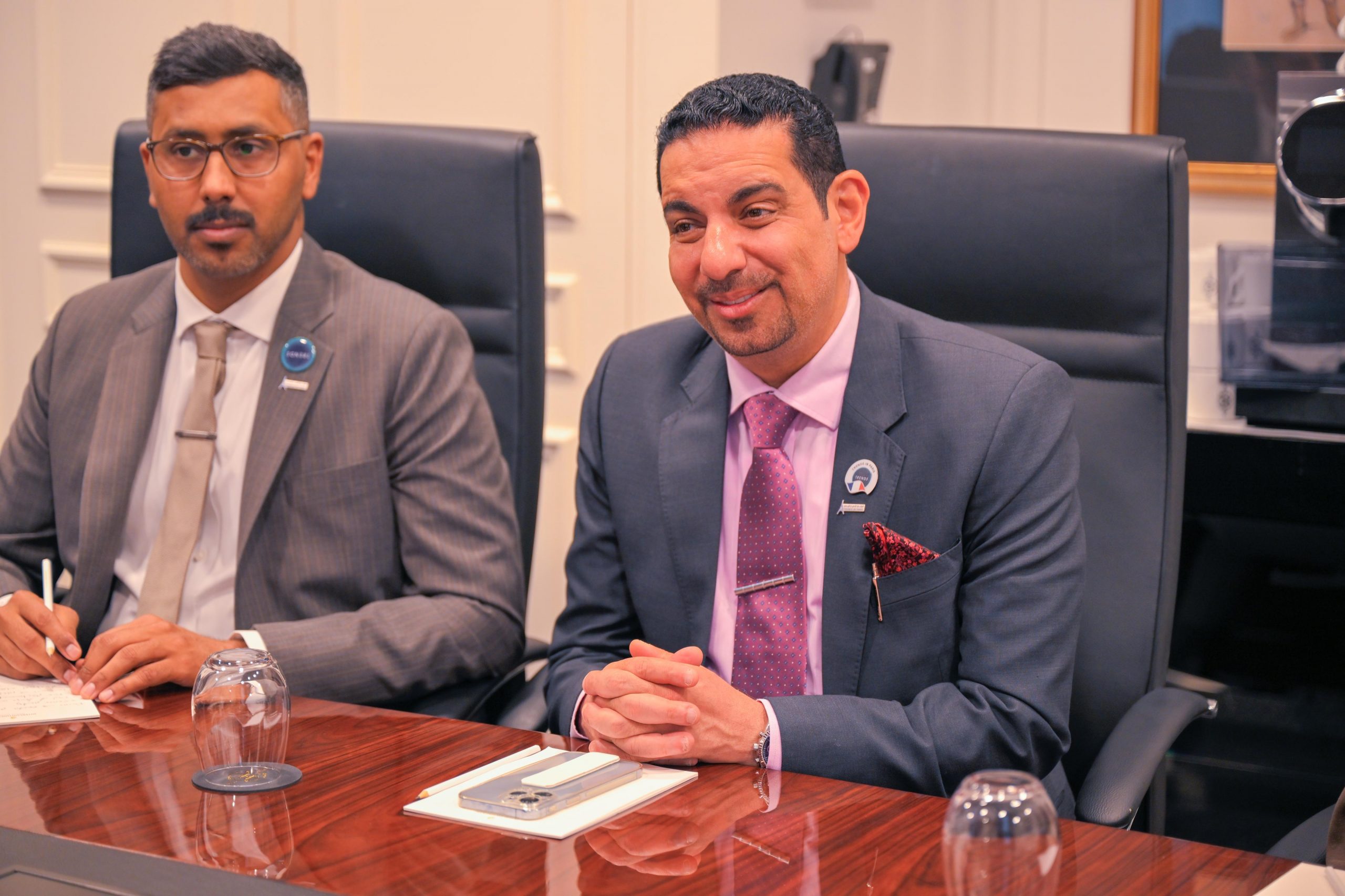
Sustainable Collaboration
Dr. Mohammed Abdullah Al-Ali, CEO of TRENDS, affirmed that the two panel discussions underscored the importance of sustainable collaboration between think tanks in the Middle East and North Africa (MENA) region and their French counterparts with the aim of confronting extremist ideologies through scientific research that analyzes and forecasts the trajectory of these destructive movements.
Dr. Al-Ali noted that discussions also focused on strengthening academic and research partnerships between TRENDS and French academic institutions and think tanks that support sustainable development efforts in communities everywhere. He added that TRENDS’ efforts and role in dismantling extremist ideologies and confronting terrorist groups—most notably the Muslim Brotherhood—were highlighted. Through its research and knowledge-based output, TRENDS works to expose the plans of these movements, uncover their sources of funding and global networks, and anticipate their future trajectories and outcomes.
Addressing Extremist Ideologies
TRENDS’ discussions with Bruno Fuchs, Chairman of the Foreign Affairs Committee in the French National Assembly and a Member of Parliament, focused on the dangers of extremist ideologies represented by political Islamist groups worldwide. The dialogue also explored ways to strengthen relations and unify efforts between the MENA region and European countries-especially France-to counter these organizations.
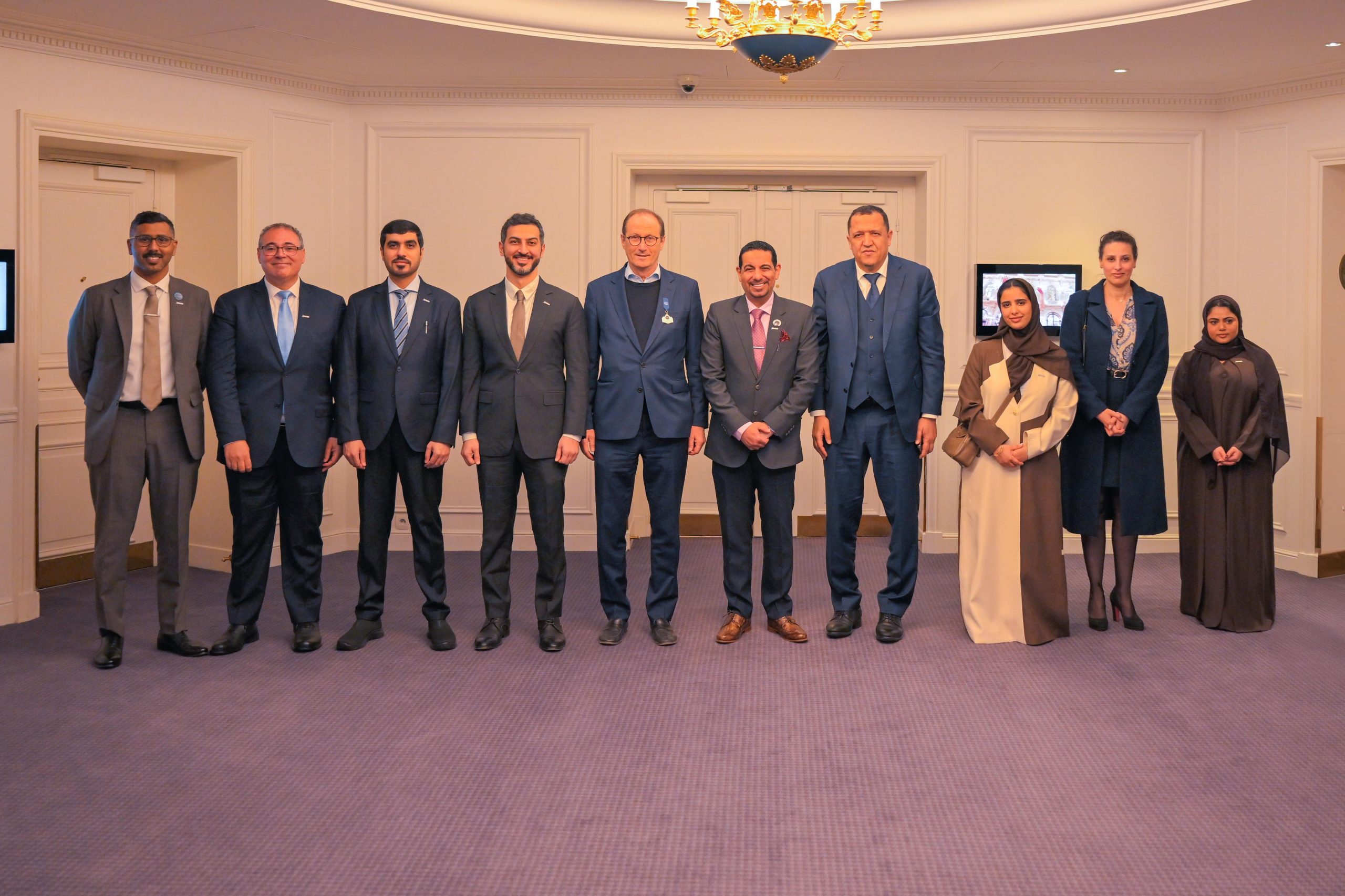
Destructive Movements
Bruno Fuchs emphasized that ever since his days as a journalist, he has been deeply interested and committed to supporting efforts to combat terrorism and extremism, and to exposing the agendas of political Islamist groups that destroy lives and undermine societies.
He stressed that the world must continue to fight these dark ideologies by thoroughly understanding and analyzing them, which is essential to dismantling their operational methods and curbing their spread. Fuchs also highlighted the critical role of national governments in supporting these efforts—particularly in disrupting the methods and financial networks of terrorist and extremist groups on a global scale.
TRENDS researchers presented the center’s scientific and research-driven work in countering extremist ideologies and terrorist movements. They highlighted, in particular, the TRENDS Encyclopedia of the Muslim Brotherhood, which analyzes the group’s ideology as the umbrella from which other extremist ideologies stem and derive their methods of inciting chaos. They also showcased the Muslim Brotherhood’s International Power Index (MBIPI), the first of its kind worldwide, which measures the group’s influence across various geographic regions and levels.
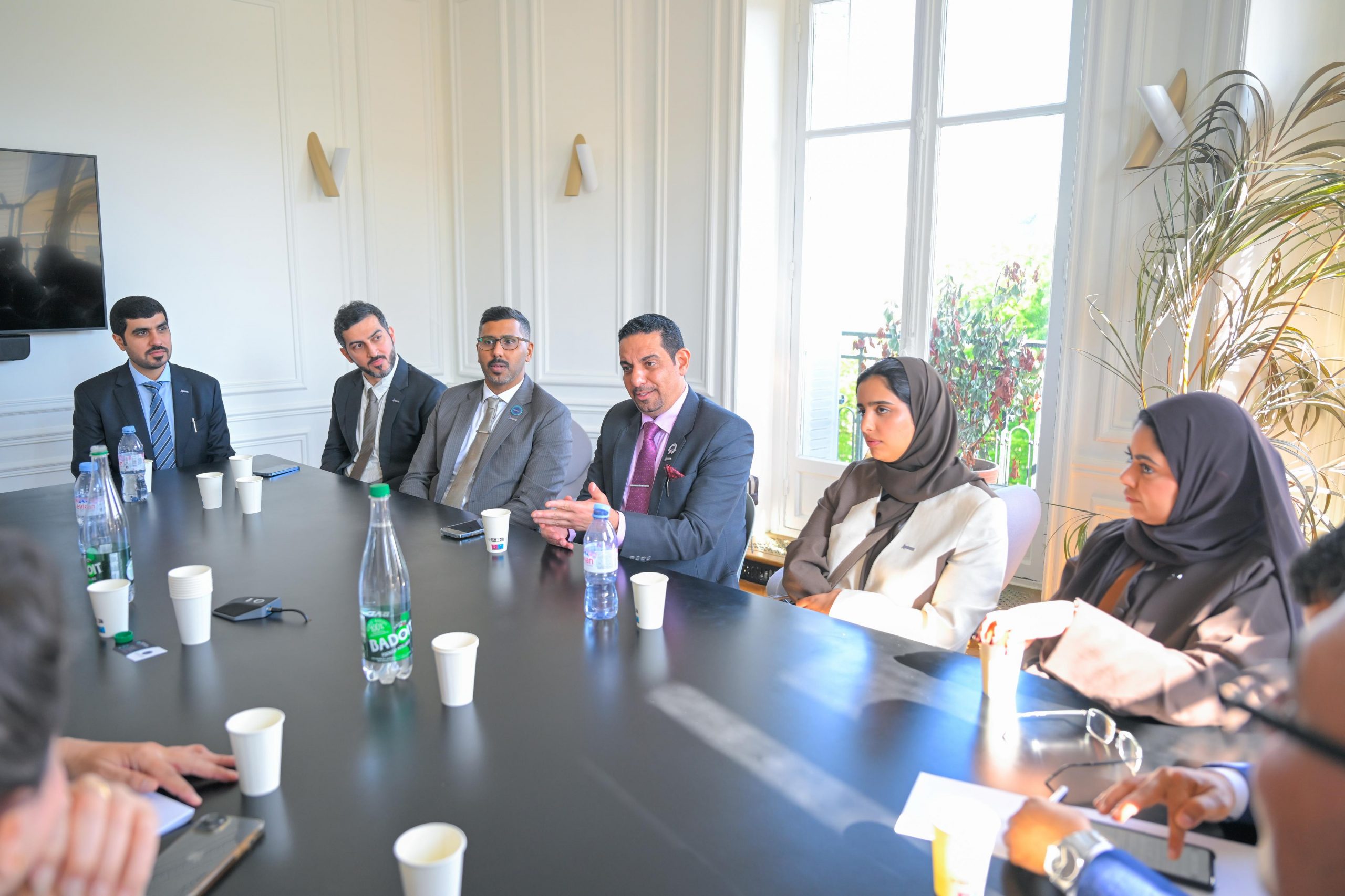
Political Islamist Groups
In a related context, the TRENDS research team held a roundtable discussion with Mr. Yonathan Arfi, President of the Representative Council of Jewish Institutions in France (CRIF), attended by officials from both sides. The dialogue focused on strategies to confront and combat extremist and terrorist movements, especially those falling under the banner of political Islam, such as the Muslim Brotherhood. The discussion also addressed the threat of other extremist groups, including the far-right.
The two parties explored avenues for cooperation and research partnerships, particularly in organizing international conferences and symposia, holding regular joint roundtables, exchanging expertise, and publishing specialized academic and knowledge-based content on topics of mutual interest and shared goals.
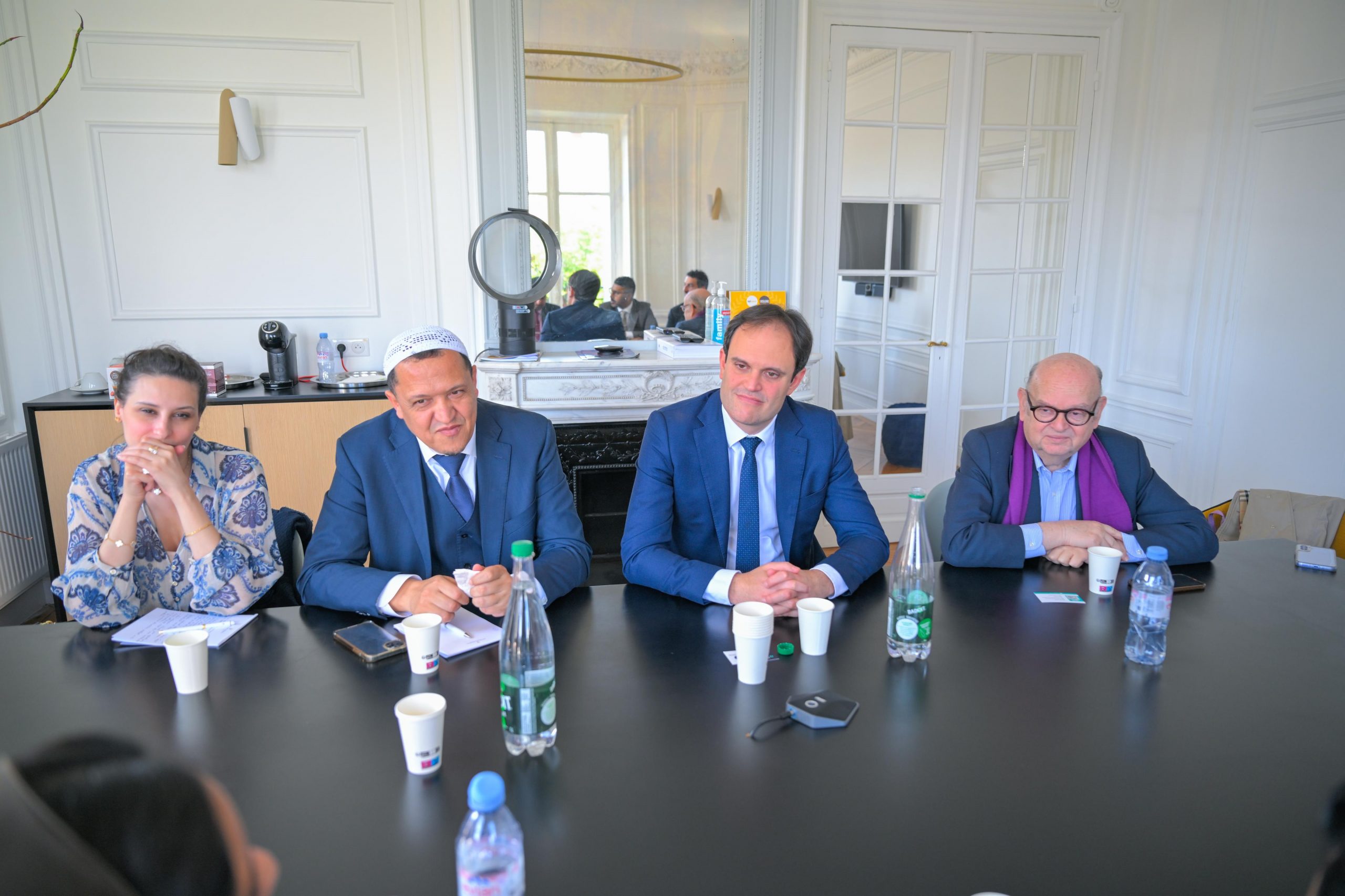
Rigorous Research and Studies
Mr. Yonathan Arfi noted that his meeting with the TRENDS research team included discussions about Islamism—particularly the influence and reach of the Muslim Brotherhood in the MENA region and Europe.
He stressed that confronting extremist groups requires precise data, academic studies, and rigorous research to help raise public awareness. This is essential for enabling societies to remain vigilant in the fight against all forms of extremism, particularly the harmful actions of the Muslim Brotherhood.
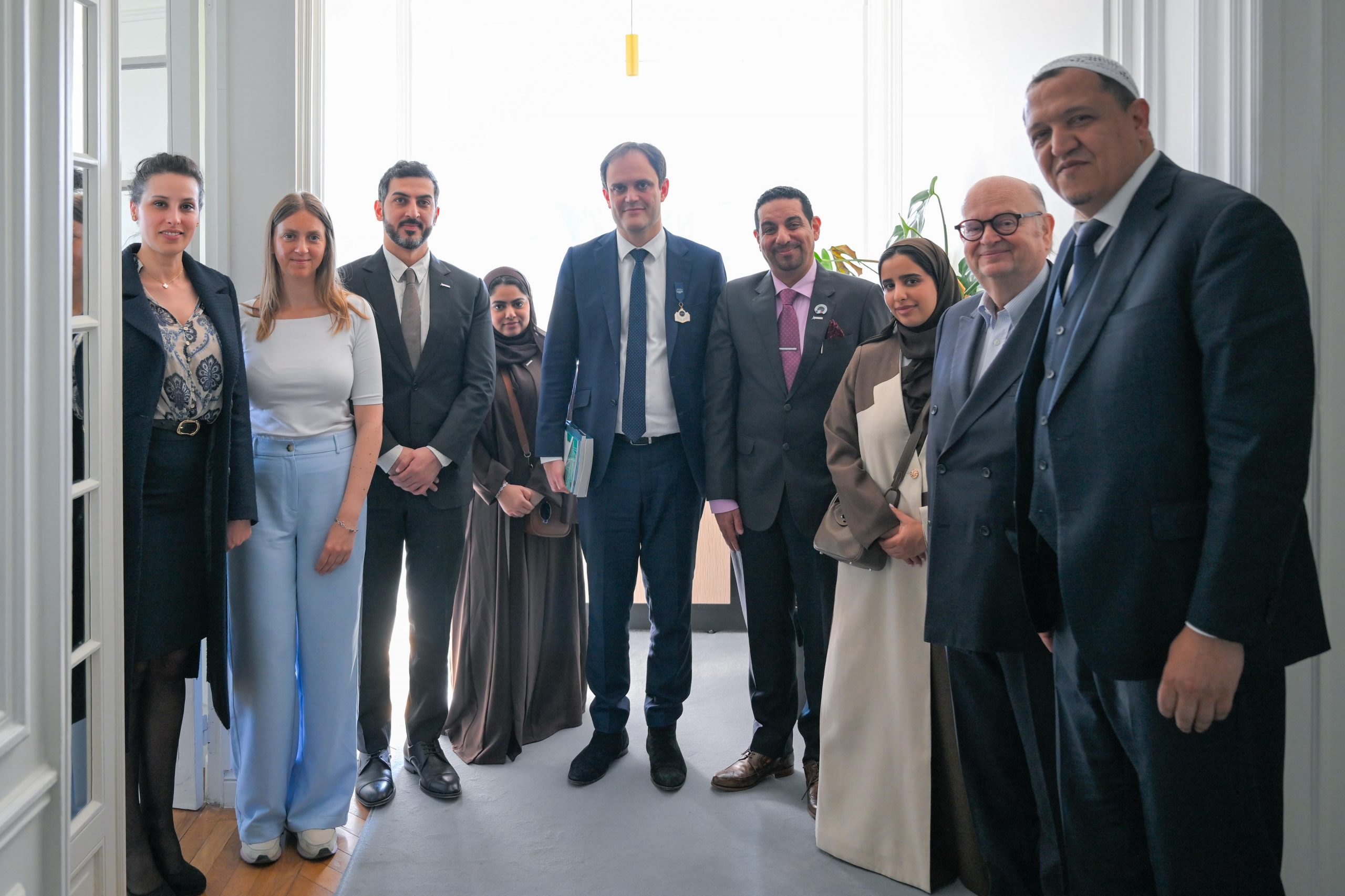
He also expressed his admiration and appreciation for the UAE’s efforts in promoting the values of tolerance and coexistence among diverse cultures and societies. He specifically praised the Abrahamic Family House as a symbol of interfaith harmony and mutual understanding between followers of different religions.
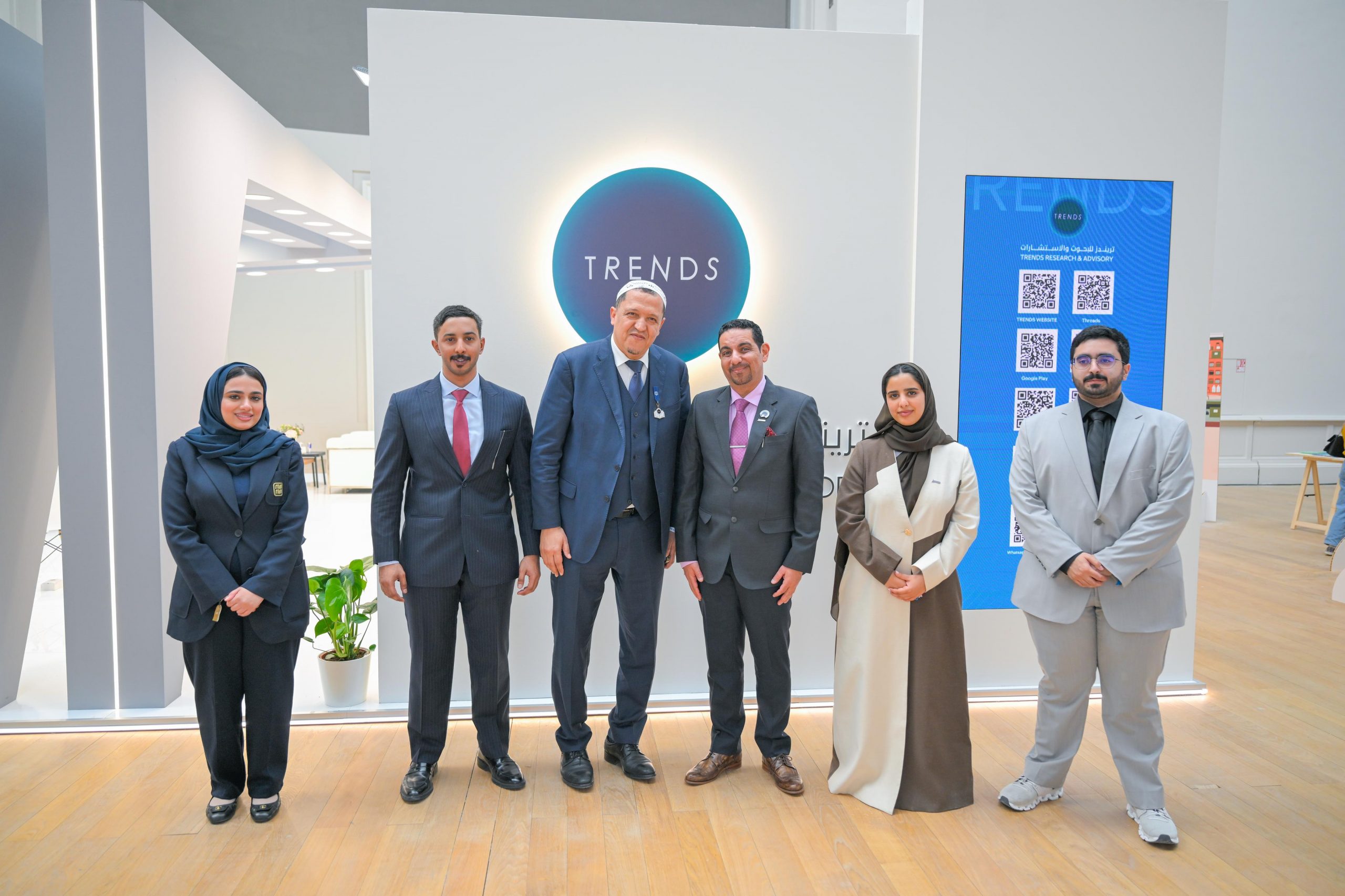
Hundreds of Translated Publications
In parallel, TRENDS began its second consecutive participation in the Paris International Book Fair, where it is showcasing hundreds of translated research and knowledge publications—especially in French—at its prominent pavilion in the Salle d’Honneur.
The pavilion also features a podcast studio where new episodes of the Trending Echoes podcast series are being recorded with French experts and academics.
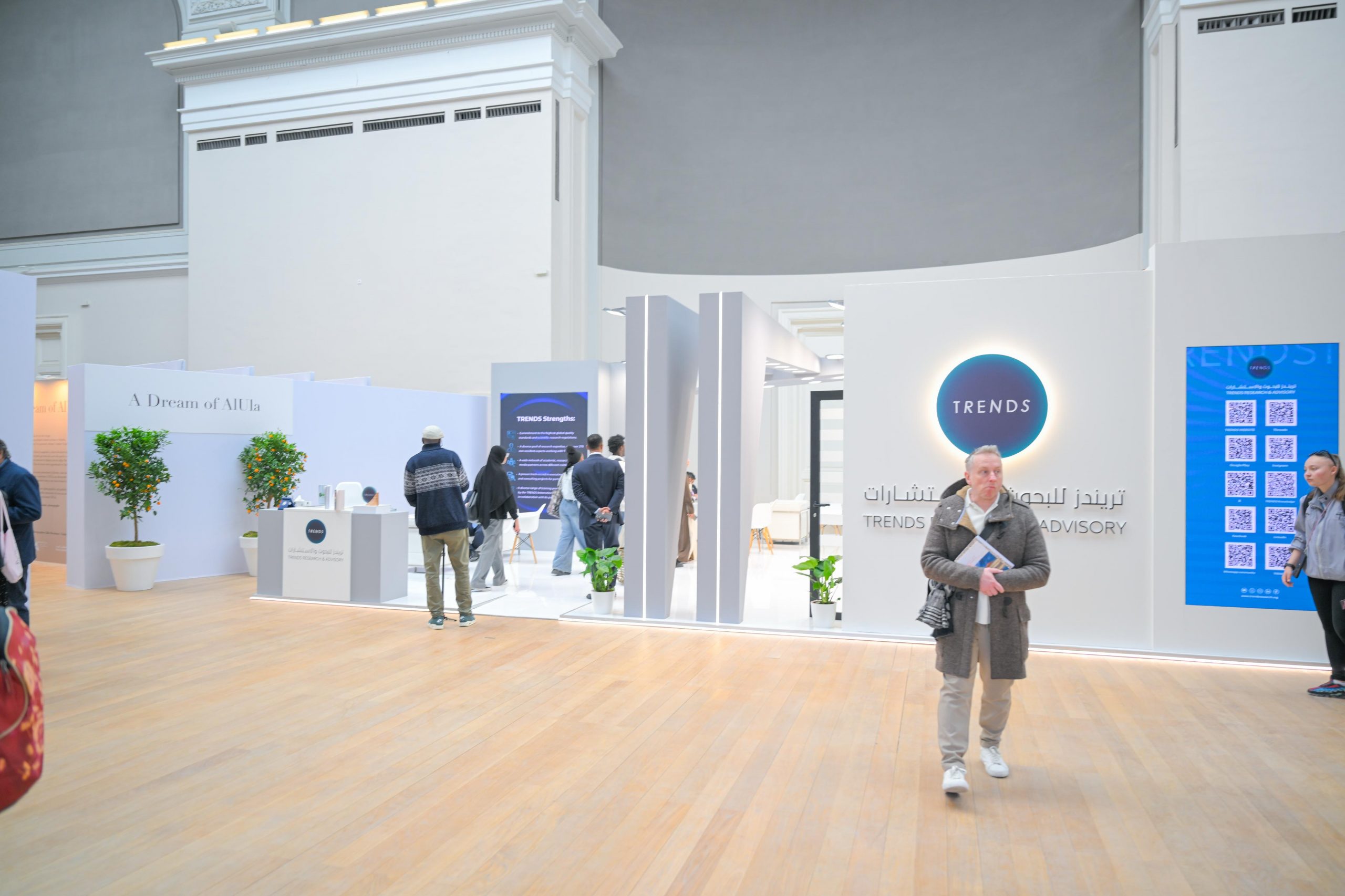
Additionally, the pavilion is hosting book signing events for newly released TRENDS publications in French and English, along with a series of panel discussions and sessions on international relations between France, the EU, and the MENA region. These include conversations on confronting political Islamist movements and separatist tendencies in Europe, as well as the role of youth in enhancing intercultural dialogue.



